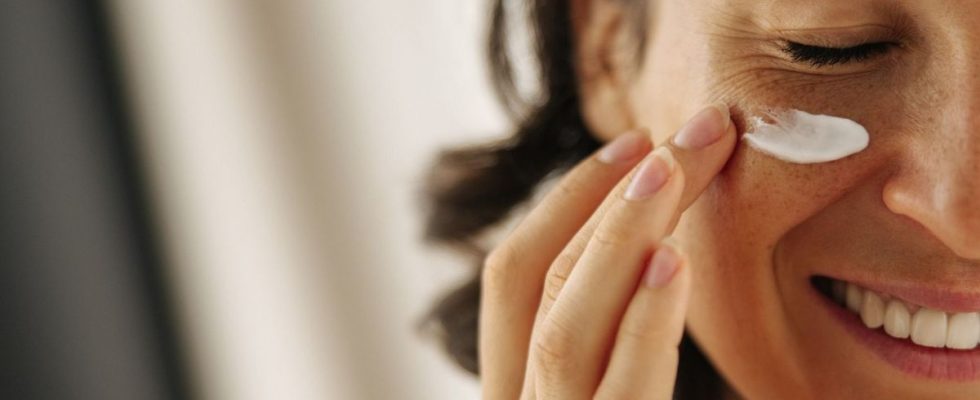Published on
Updated
Reading 2 min.
Marie Lanen
Head of parenting sections (baby, pregnancy, family), psychology and beauty
in collaboration with
Laurent Misery (Dermatologist at Brest University Hospital)

In a press release released on February 16, the Psychodermatology Group of the French Society of Dermatology and Sexually Transmitted Pathology wishes to alert authorities, consumers and health professionals to a worrying trend among certain cosmetic manufacturers. Doctissimo takes stock with Professor Laurent Misery, President of this group and dermatologist at Brest University Hospital.
If we now know that the psychological impact of certain skin disorders can be very significant, stress can aggravate these disorders. The research also highlighted that the interactions between the skin and the nervous system are very close and that the properties of the skin can be modified by the nervous system. The use of cosmetics can possibly improve the quality of life of users to a certain extent, especially during skin diseases such as psoriasis or eczema. However, some manufacturers claim or imply that the application of their products to the skin can have direct effects on the nervous system and the brain and therefore on the psyche or mood. Professor Laurent Misery sheds light on this worrying trend for consumers.
Cosmetics should ONLY act on the skin
Contacted by Doctissimo, Professor Laurent Misery, dermatologist at Brest University Hospital, specifies: “For several years, certain cosmetic laboratories have been advertising treatments intended to ‘make you happy’. The latter claim the presence of active ingredients which are supposed to act on mood or emotions or well-being in their cosmetics. There are arguments that may be true, we cannot deny a certain pleasure of application and comfort, particularly in cases of eczema, but for the rest, it is mainly false advertising. Let’s not forget that cosmetics should only act on the skin and not on the brain. Because in the ‘best’ case consumers are duped, and in the worst case it’s serious. Indeed, to ‘make you happy’, these cosmetics necessarily act on endorphins (the well-being hormone), this can induce dependence; it’s serious. We must denounce these allegations and remove these products from the market“. The President of the Psychodermatology Group of the French Society of Dermatology and Sexually Transmitted Pathologies also specifies that an alert was sent to Anses as well as to the General Directorate for Competition, Consumption and the Repression of frauds.
In the press release, it is thus specified “it is very important to remember that cosmetics can only have an effect on the skin, appendages or mucous membranes according to international rules. A cosmetic cannot therefore have a specific effect direct on the brain and therefore on the psyche. If this were the case, this product should be immediately withdrawn from the market, especially since the question of inducing dependencies can be raised. Otherwise, it should be considered misleading advertising and such advertising should be prohibited.”
To avoid making a mistake in the cosmetics aisle, particularly in the case of specific skin problems, it is advisable to consult an expert dermatologist who will be able to advise you on the formulas and products suited to your skin. So be careful of marketing messages that promise happiness and well-being thanks to a face cream for example.
